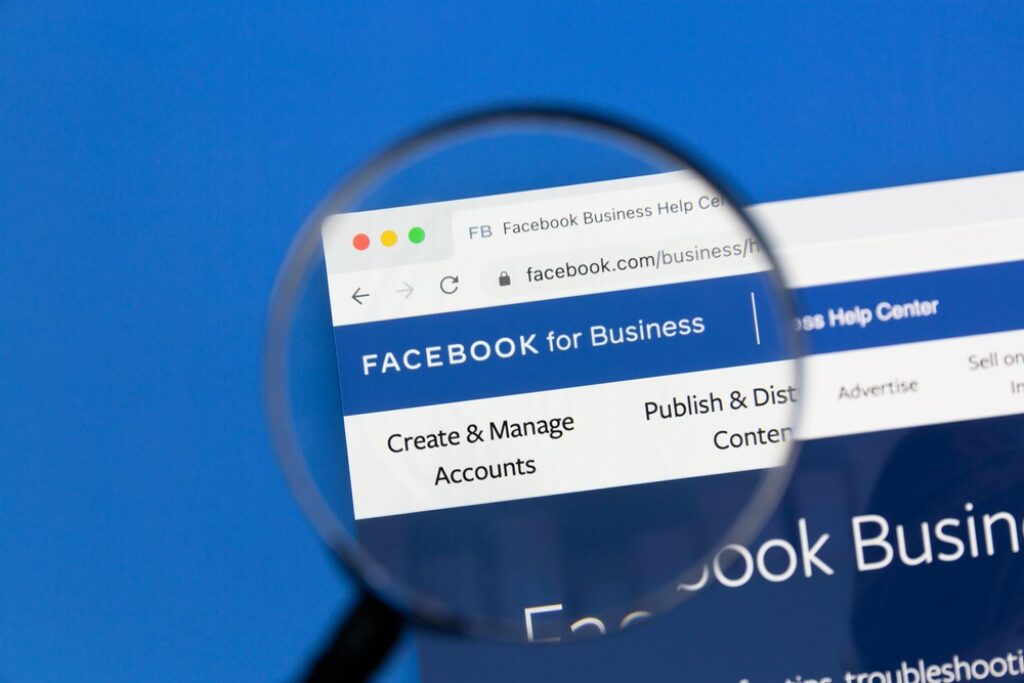
How To Use Facebook For Business Marketing
Marketing has been an essential part of a successful business for centuries already. However, with the advent of the computer age, the landscape of business and rules of marketing have become very changed in the last few decades. This is especially true in terms of the internet.
Related Topics (Sponsored Ads):
In today’s internet age, social media platforms have become important tools for businesses to connect with their target audience and achieve their marketing goals. Among these platforms, Facebook has been one of the most effective and widely used channels for business marketing. With over 2.8 billion monthly active users, Facebook provides businesses of all sizes with a special opportunity to reach a very large audience and maximize their marketing success.

Setting Up a Business Page on Facebook
To begin your Facebook marketing journey, the first step is to set up a business page on the platform. This page will serve as the central hub for your brand’s online presence on Facebook. When creating your page, ensure that you provide accurate and comprehensive information about your business, including your brand name, logo, contact details, and a compelling description that highlights your unique selling points.
For example, let’s consider a small bakery. Their Facebook business page should showcase enticing images of their baked goods, display their location and opening hours, and include a brief history of the bakery along with customer testimonials. This information will help potential customers understand what sets the bakery apart and encourage them to engage with the page.
Creating Engaging Content
After your business page is set up, it’s crucial to create and share engaging content that attracts and engages with your target audience. Facebook offers various content formats, including text posts, images, videos, and live streams. Experiment with different formats to determine which ones generate the most engagement from your audience.
For instance, a fitness apparel brand could create engaging content by sharing workout tutorials, inspirational stories, and before-and-after transformation pictures. By providing valuable and relevant content, the brand can position itself as a trusted authority in the fitness industry and foster a loyal community of followers.
Utilizing Facebook Advertising
While direct marketing reach is important, utilizing Facebook’s advertising features can enhance your marketing efforts. Facebook offers a range of advertising options, including boosted posts, carousel ads, and targeted ads based on demographics, interests, and behaviors. These tools allow you to reach a desired specific audience and maximize the impact of your marketing campaigns.
For example, a travel agency could create a targeted ad campaign to promote a new vacation package. By specifying the desired age range, location, and interests of their target audience, the agency can ensure that their ads are shown to people who are most likely to be interested in their offering, thus increasing the chances of conversions.
Engaging with the Facebook Community
Building a strong community on Facebook helps establish brand loyalty and foster meaningful connections with your audience. Responding to comments, messages, and reviews promptly shows your customers that you value their feedback and are committed to providing excellent customer service.
For instance, a beauty brand could actively engage with their Facebook community by responding to comments, answering product-related questions, and organizing interactive live Q&A sessions. By creating a positive and interactive environment, the brand can build trust and loyalty among its customers.
Analyzing and Measuring Success
To ensure the effectiveness of your Facebook marketing strategies, it’s essential to analyze and measure your results. Facebook provides usefull analytics tools, such as Facebook Insights, which offer valuable data and insights into your page’s performance. These metrics can help you understand the effectiveness of your content, track audience engagement, and identify areas for improvement.
For example, an e-commerce store could monitor their Facebook Insights to determine which products generate the most interest and engagement among their audience. By leveraging this data, the store can optimize their marketing efforts and focus on promoting the products that are most likely to drive conversions.
Examples of Facebook Marketing
To illustrate the usage of Facebook marketing, let’s consider two different examples:
Local Restaurant: A family-owned restaurant decides to utilize Facebook marketing to attract new customers. By regularly posting mouth-watering images of their dishes, promoting limited-time special offers, and engaging with their followers through contests and giveaways, the restaurant successfully increases its online visibility. As a result, they can experience a significant increase in foot traffic and a boost in reservations.
Online Retailer: An online retailer specializes in selling handmade jewelry. Through Facebook advertising, they target users who have expressed an interest in similar products. By showcasing high-quality product images, running exclusive promotions, and leveraging customer testimonials, the retailer can drive traffic to their website and achieves a substantial increase in sales.
Final Thoughts
While it is cool and often very effective to use all the tech tools Facebook offers, it is important to not forget the “human element”. Always try to include the human touch – including photos and stories about the owners and/or business team members; providing for real person sales support and customer service and overall making it friendly, easy and positive to do business with you. Remember, money does matter – but it is people who count.




